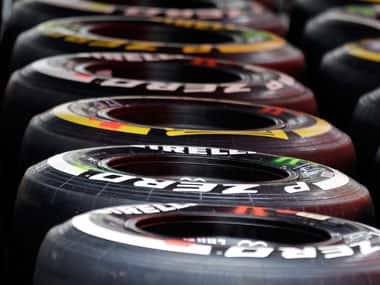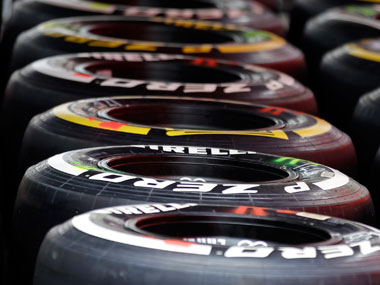Apollo Tyres is not currently looking at converting into equity some of the debt it will take to finance its $2.5 billion deal to buy U.S.-based Cooper Tire & Rubber, Chief Financial Officer Sunam Sarkar said today.
The company’s management expects the acquisition to add value from the first year because of the US markets, with synergies of $80-100 million over a three year period. But experts feel debt overhang will weigh on the stock for the next few quarters as the revenue share for Apollo Tyres India will come down substantially.
The Apollo parties have obtained committed debt financing from Standard Chartered Bank for $450.0 million and committed debt financing from Morgan Stanley Senior Funding, Inc, Deutsche Bank AG New York Branch, Deutsche Bank AG Cayman Islands Branch, Deutsche Bank Securities Inc, Goldman Sachs Bank USA and Standard Chartered Bank for $2.375 billion, consisting of a $1.875 billion bridge facility and a $500 million revolving credit facility.
[caption id=“attachment_871637” align=“alignleft” width=“380”] Reuters[/caption]
Reuters[/caption]
Apollo shares fell as much as 8 percent today, extending their 25 percent drop on Thursday on worries about the company’s debt profile after the acquisition of Cooper, a company nearly three times the Indian company’s market value of $800 million and investors fear it will take at least 2-3 years for the company to perform well.
While the deal will help Apollo gain access to new markets , analysts termed the Cooper Tire buy for Rs 14,500 crore as too ambitious and aggressive.
Apollo Tyres will fund this acquisition by raising 100 percent of this cost via debt and 80 percent of this debt will be serviced by the holding entity housing the target company and Apollo’s European business Vredestein.
Analsyst said high debt burden and slowdown in demand environment are likely to weigh on the stock at least in near terms.
Ambit analyst Ashvin Shetty expects a significant increase in the risk profile of Apollo Tyres, particularly in view of the current weak demand environment.
According to Basudeb Banerjee, Equity Research - Auto Ancillary & IT Services at Quant Capital, the acquisition is too large for the company to digest.
“If one looks at the valuation premium which they are paying compared to what Cooper Tire was trading at, is also very much on the higher side adjusted enterprise value (EV)/ earnings before interest, taxes, depreciation and amortisation (EBITDA) of somewhere around five times after factoring in pension liabilities. Cooper was trading at 3.5 times EV/EBITDA. So, this Rs 15,000 crore of debt is very big for Apollo’s books and debt to equity will reach around three times. Therefore, a knee jerk reaction on the stock price was expected,” he said in an interview with CNBC-TV18.
A report in Economic Times points out that Apollo has now become the cheapest tyre stock among the top four player in India.
In 2013 Cooper Tire gave a cautious outlook on margins, but Apollo has paid around 0.6 times Cooper’s calendar year 2012 revenues, which is a bit higher than the 0.5 times paid by Hindalco for Novelis in Feb 2007 and 0.3 times paid by Tata for JLR, the report added.
Cooper stockholders will receive $35/share in cash, which is at a 40 percent premium to Cooper’s 30-day volume-weighted average price.
Clearly investors are unhappy with the steep premium Apollo paid for the deal and the consequent doubling of net debt to equity. Also there are concerns over pricing stability in the US given competition from Chinese and Japanese players, even if the synergies are well established.
)